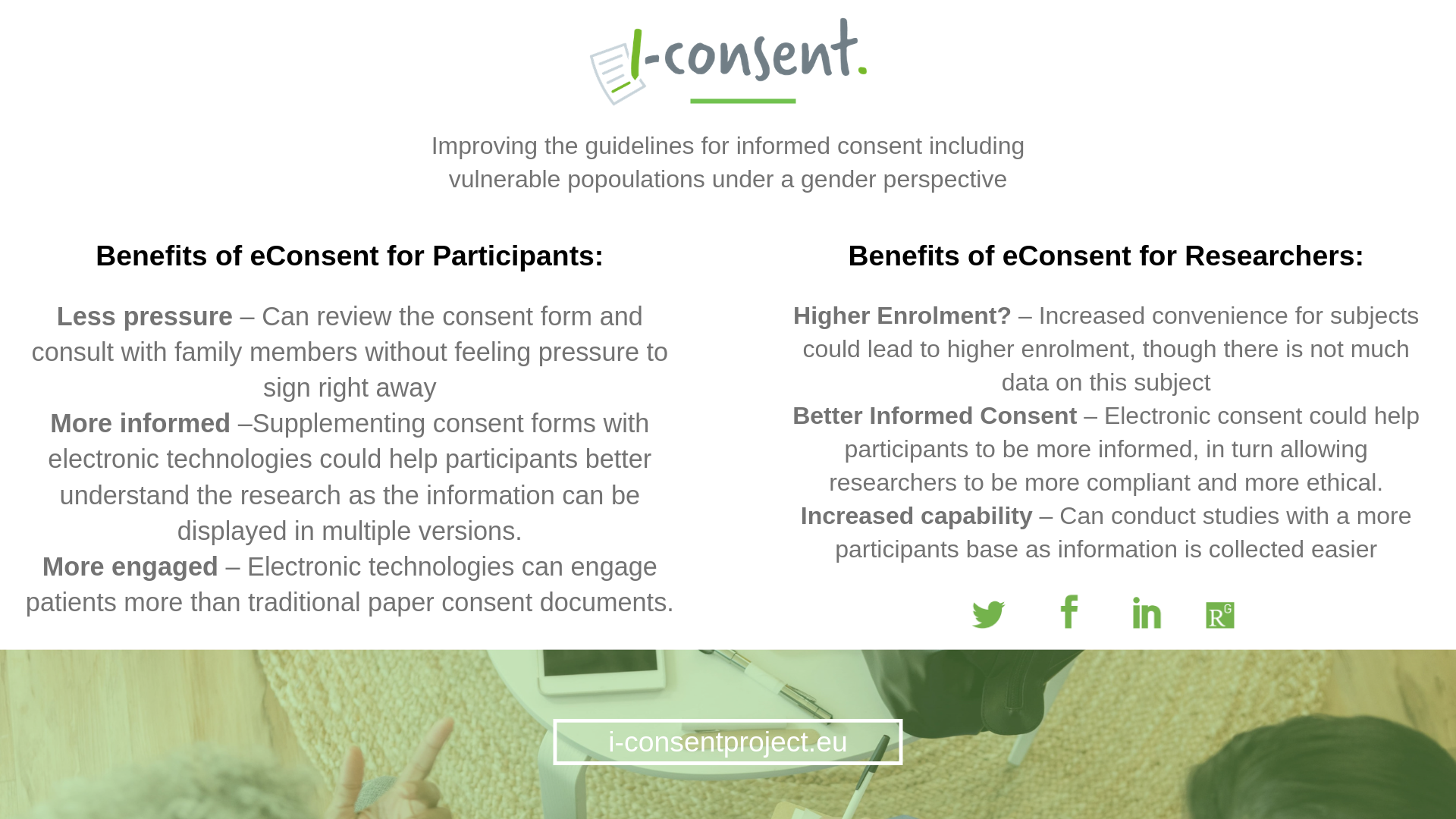eConsent is consolidating itself as benchmark in the development of health-related studies
Although there has been a change since those everlasting 15-20 page long Informed Consent (IC) documents, when participating in clinical studies potential participants still face extense, generic and difficult to understand documents. Probably, the situation gets worse when patient is over 60 or under 18, has a specific condition so as being pregnant or belongs to particular vulnerable population. In this sense, scientific research community is showing greater interest in electronic informed consent as acknowledged by the U .S. Food and Drug Administration (FDA) and the Office for Human Research Protections (OHRP) in their joint guidance related to the use of eConsent.
What do you think about videos, clips, graphics, hyperlinks, and multi-media interaction to replace traditional Informed consent documents? Sounds appealing, isn’t it? Electronic consenting offers benefits that traditional paper-based consenting does not, let’s explore some of them:
Benefits of eConsent for Participants:
- Less pressure and anxiety – Can review the consent form and consult with family members without feeling pressure
- More informed –Supplementing consent forms with electronic technologies could consequently help participants to better understand the research because the information can be displayed in multiple versions.
- More engaged – Electronic technologies can certainly engage patients more than traditional paper consent documents.
Benefits of eConsent for Researchers:
- Higher Enrolment? – Increased convenience for subjects could lead for instance to higher enrolment, though there is not much data on this subject
- Better Informed Consent – Electronic consent could help participants be more informed. In turn researchers would be more compliant and ethical.
- Paperless – Ability to manage documents electronically
- Industry Leader – Certainly, researchers have the opportunity to establish themselves as innovators in improving consent processes
- Increased capability – Can conduct studies with a more participants base as information is collected easier

Has paper-based Informed Consent era come to an end?
